Synopsis
Cornelius Christian is an American expatriate who arrives back in his native New York City from Ireland. His wife became ill and died aboard ship, and, with limited resources, he agrees to take a job in a funeral home owned by Clarence Vine, a wealthy businessman and mortician, in order to pay for his wife's funeral and interment. As a New York native originally from the Bronx he meets people from his past, gets himself into difficult situations with his landlady, his first girlfriend, Charlotte, his clients, dead and alive, and his co-workers at the Funeral Home and his boss. In one episode he meets Fanny Sourpuss whose husband has just died. She is a very rich widow who begins an on-off relationship with Cornelius. After a while he tries his hand at preparing corpses himself, and his first attempt is greeted with horror by the dead man's widow who, making a scene, causes him to insult her and storm off, presuming that he is fired.
Cornelius, is, however, very adept at fisticuffs, and deals expeditiously with Fanny's ex-husband (who is stalking her), her doorman, and in situations such as when he is lured into a clip joint by a prostitute and has to fight his way out. Eventually this predilection for violence catches up with him. He runs into Charlotte, his first girlfriend. He finds another job with a spark plug manufacturer named Mott who hires Cornelius to work in his idea room where Cornelius makes a nuisance of himself. Fanny, whom he seems to love, has developed cancer, and takes a train to Minnesota (presumably to the Mayo Clinic).
The end of the novel is populated by flashbacks and dream sequences regarding his rather callous farming out to a foster home when he was a child, to his early days with Charlotte in the Bronx, to a climactic pair of scenes where he gets in a bar fight and ends up in hospital, and later takes Charlotte to a fancy French restaurant and gets snubbed by the staff there. In the last scene he books his passage back to Europe on another steamer.

In Irish mythology, Aengus or Óengus is one of the Tuatha Dé Danann and probably originally a god associated with youth, love, summer and poetic inspiration. The son of The Dagda and Boann, Aengus is also known as Macan Óc, and corresponds to the Welsh mythical figure Mabon and the Celtic god Maponos. He plays a central role in five Irish myths.

Little Dorrit is a novel by Charles Dickens, originally published in serial form between 1855 and 1857. The story features Amy Dorrit, youngest child of her family, born and raised in the Marshalsea prison for debtors in London. Arthur Clennam encounters her after returning home from a 20-year absence, ready to begin his life anew.

Trainspotting is the first novel by Scottish writer Irvine Welsh, first published in 1993. It takes the form of a collection of short stories, written in either Scots, Scottish English or British English, revolving around various residents of Leith, Edinburgh, who either use heroin, are friends of the core group of heroin users, or engage in destructive activities that are effectively addictions. The novel is set in the late 1980s and has been described by The Sunday Times as "the voice of punk, grown up, grown wiser and grown eloquent".

"Bluebeard" is a French folktale, the most famous surviving version of which was written by Charles Perrault and first published by Barbin in Paris in 1697 in Histoires ou contes du temps passé. The tale tells the story of a wealthy man in the habit of murdering his wives and the attempts of the present one to avoid the fate of her predecessors. "The White Dove", "The Robber Bridegroom", and "Fitcher's Bird" are tales similar to "Bluebeard". The notoriety of the tale is such that Merriam-Webster gives the word "Bluebeard" the definition of "a man who marries and kills one wife after another". The verb "bluebearding" has even appeared as a way to describe the crime of either killing a series of women, or seducing and abandoning a series of women.

Shane Patrick Lysaght MacGowan was a British-born Irish singer-songwriter and musician best known as the lead vocalist and primary lyricist of Celtic punk band the Pogues. He also produced solo material and collaborated with artists including Joe Strummer, Nick Cave, Steve Earle, Sinéad O'Connor, Ronnie Drew, and Cruachan. Known for his exceptional songwriting ability and his heavy alcohol and drug use, MacGowan was described by The New York Times as "a titanically destructive personality and a master songsmith whose lyrics painted vivid portraits of the underbelly of Irish immigrant life".

"Rapunzel" is a European fairy tale most notably recorded by the Brothers Grimm and published in 1812 as part of Children's and Household Tales. The Brothers Grimm's story was developed from the French literary fairy tale of Persinette by Charlotte-Rose de Caumont de La Force (1698), which itself is an alternative version of the Italian fairy tale Petrosinella by Giambattista Basile.

James Patrick Donleavy was an American-Irish novelist, short story writer and playwright. His best-known work is the novel The Ginger Man, which was initially banned for obscenity.
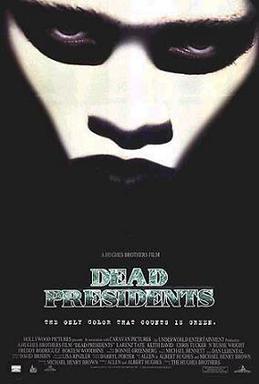
Dead Presidents is a 1995 American crime film co-written, produced and directed by the Hughes Brothers. The film chronicles the life of Anthony Curtis, focusing on his teenage years as a high school graduate and his experiences during the Vietnam War as a Recon Marine. As he returns to his hometown in The Bronx, Curtis finds himself struggling to support himself and his family, eventually turning to a life of crime.

The Ginger Man is a novel, first published in Paris in 1955, by J. P. Donleavy. The story is set in Dublin, Ireland, in post-war 1947. Upon its publication, it was banned both in Ireland and the United States of America by reason of obscenity.

If I Should Fall from Grace with God is the third studio album by Irish folk-punk band the Pogues, released on 18 January 1988. Released in the wake of their biggest hit single, "Fairytale of New York", If I Should Fall from Grace with God also became the band's best-selling album, peaking at number three on the UK Albums Chart and reaching the top ten in several other countries.
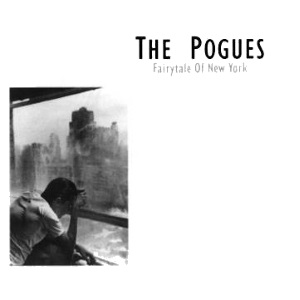
"Fairytale of New York" is a song written by Jem Finer and Shane MacGowan and recorded by their London-based band the Pogues, featuring English singer-songwriter Kirsty MacColl on vocals. The song is an Irish folk-style ballad and was written as a duet, with the Pogues' singer MacGowan taking the role of the male character and MacColl playing the female character. It was originally released as a single on 23 November 1987 and later featured on the Pogues' 1988 album If I Should Fall from Grace with God.
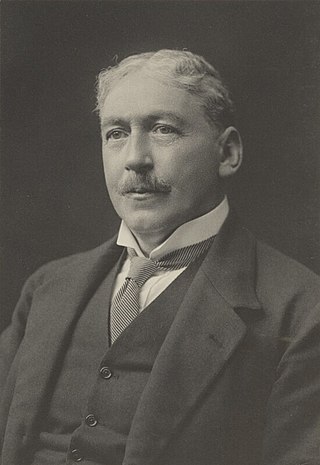
Henry de Vere Stacpoole was an Irish author. His 1908 romance novel The Blue Lagoon has been adapted into multiple films. He published using his own name and sometimes the pseudonym Tyler de Saix.
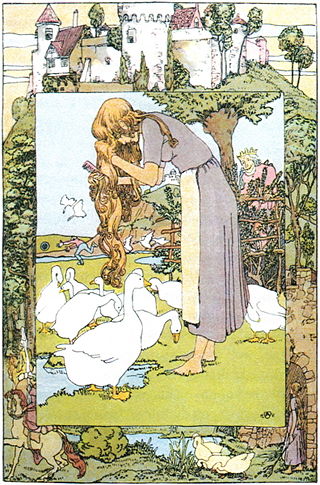
"The Goose Girl" is a German fairy tale collected by the Brothers Grimm and first published in Grimm's Fairy Tales in 1815. It is of Aarne-Thompson type 533.

Thumbelina is a 1994 American independent animated musical fantasy film directed by Don Bluth and Gary Goldman, based on the story of the same name by Hans Christian Andersen. The film stars the voices of Jodi Benson, Gary Imhoff and John Hurt, with supporting roles from Gino Conforti, Charo, Gilbert Gottfried, Carol Channing and Joe Lynch.

Sleeping Beauties is a 1999 short comedy film directed by Jamie Babbit. It premiered at the 1998 Sundance Film Festival. It stars Sarah Lassez as a morgue beautician trying to get over her ex-girlfriend, played by Radha Mitchell. Babbit made the film with help from David Fincher and Michael Douglas. It played at several film festivals during 1998 and 1999, and was later distributed on a DVD collection of short films by production company POWER UP. Babbit won a Channel 4 award for the film.

The Beastly Beatitudes of Balthazar B is the third full-length novel by Irish American writer J. P. Donleavy and follows the picaresque experiences of the eponymous character from his birth into his mid-twenties. The book was published in the US by Delacorte Press in 1968 and the following year in Britain by Eyre and Spottiswoode. Although it was favourably reviewed at the time, it was also criticized for its regressive dependence on the same subject matter as in The Ginger Man.
Micí Mac Gabhann was a seanchaí and memoirist from the County Donegal Gaeltacht. He is best known for his posthumously published Irish diaspora memoir Rotha Mór an tSaoil (1959). It was dictated to his folklorist son-in law Seán Ó hEochaidh and polished for publication by Proinsias Ó Conluainn. The account won wide praise and was translated into English by Valentin Iremonger as The Hard Road to Klondike (1962).
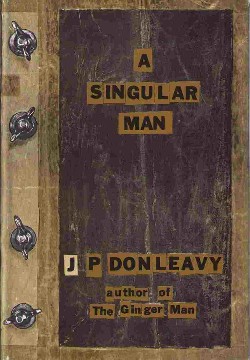
A Singular Man is a 1963 novel by J. P. Donleavy.

Arrah-na-Pogue is a 1911 American silent film produced by Kalem. It is based on the 1864 play of the same name by Dion Boucicault. It was directed by Sidney Olcott with Gene Gauntier, Jack J. Clark, JP McGowan and Robert Vignola. Gene Gauntier adapted a play written by Dion Boucicault, Arrah-na-Pogue, an Irish phrase that can be translated as "Arrah of the Kiss".

Adventures of Gilla Na Chreck An Gour is an Irish fairy tale collected by folklorist Patrick Kennedy and published in Legendary Fictions of the Irish Celts (1866). The tale was also published by Irish poet Alfred Perceval Graves in his Irish Fairy Book (1909). Joseph Jacobs published the tale as The Lad with the Goat-Skin in his Celtic Fairy Tales.


















